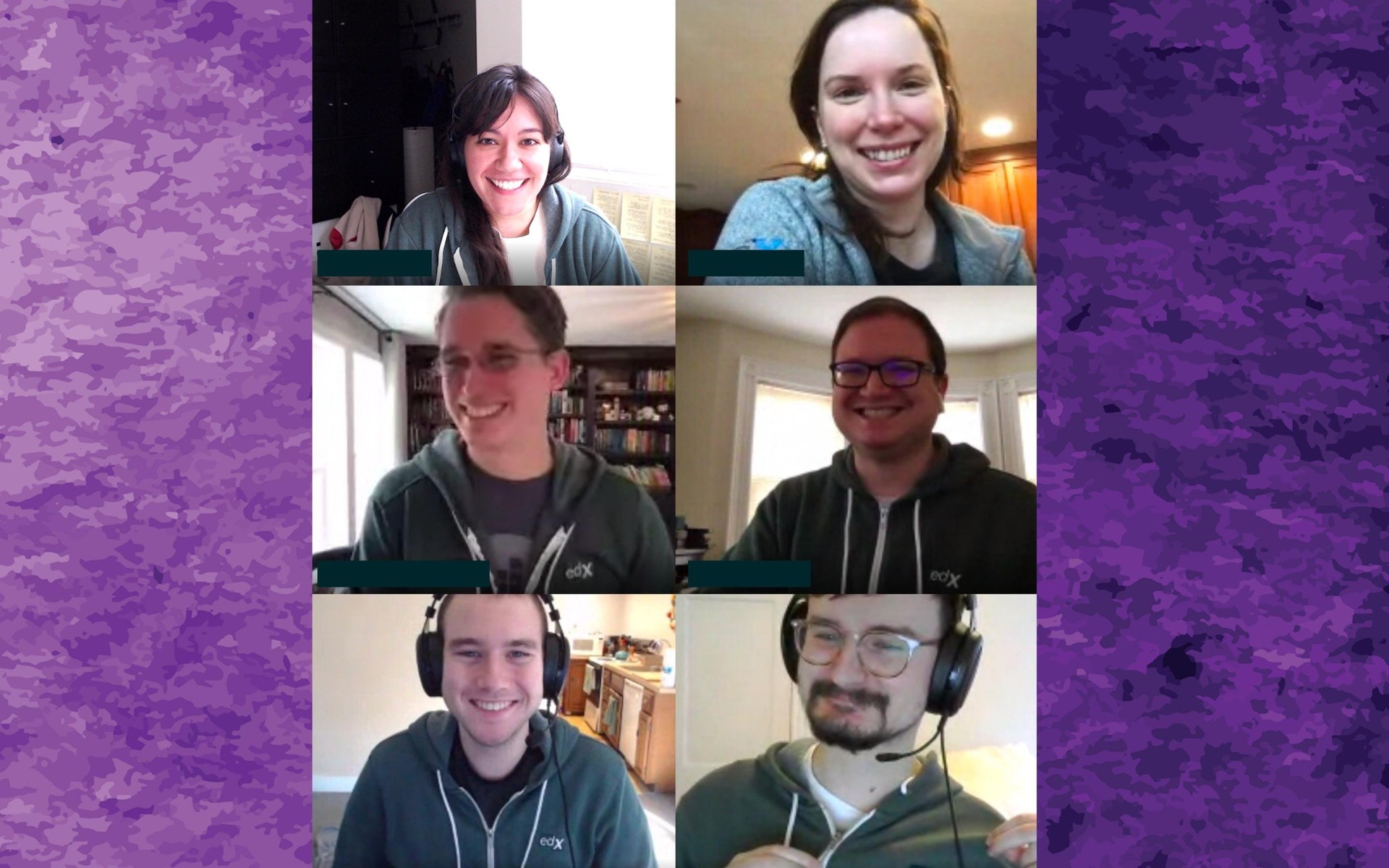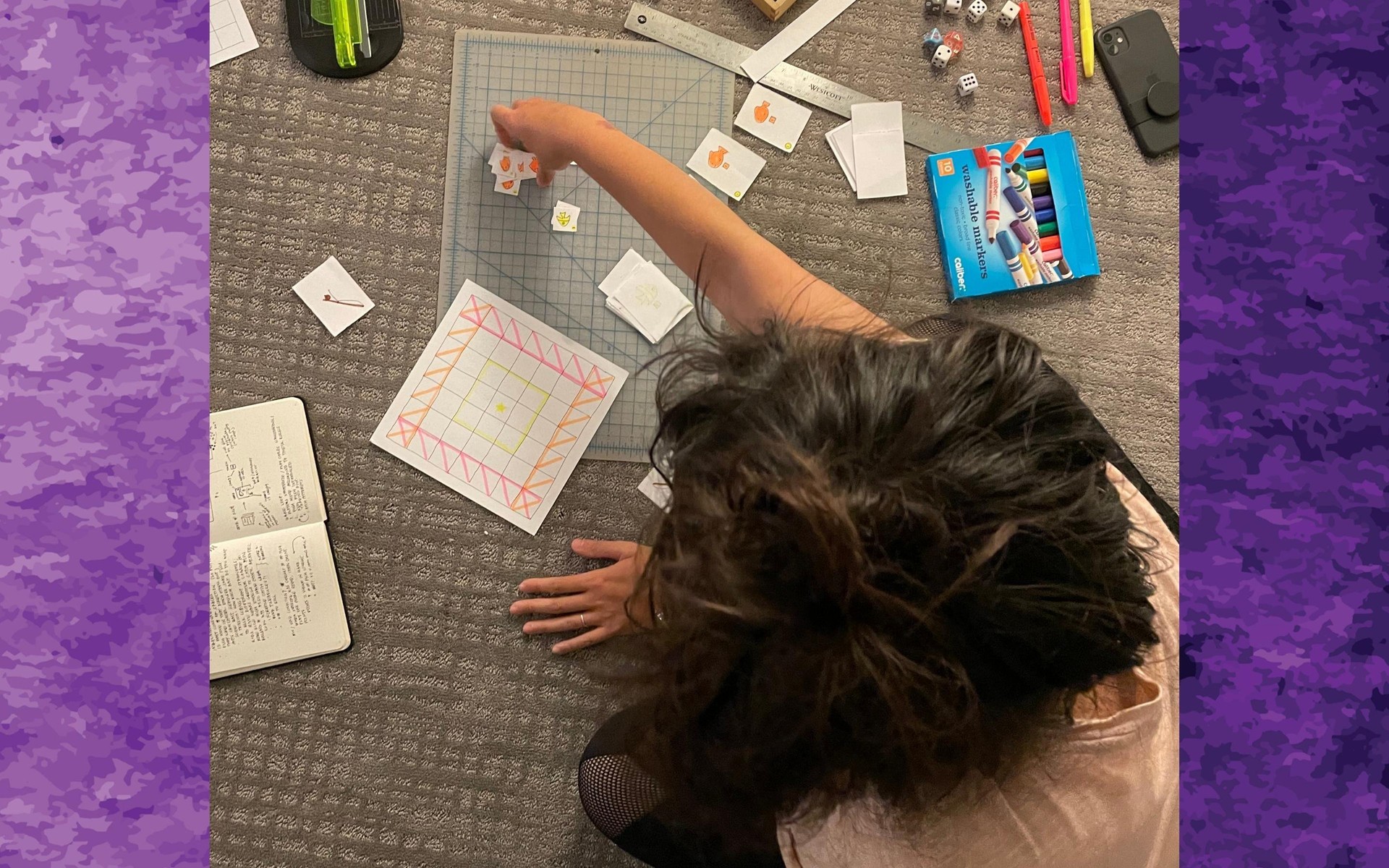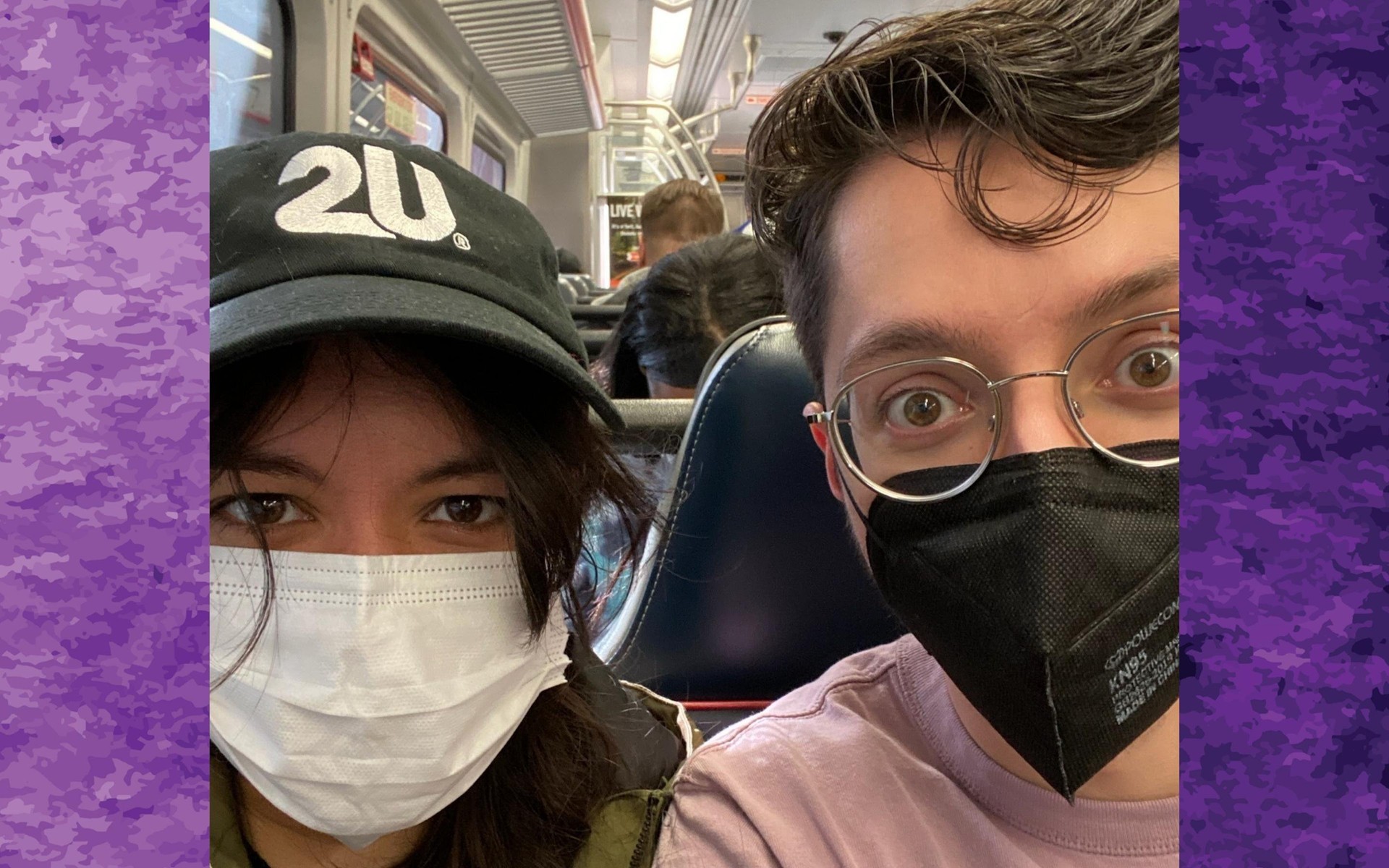Culture
Women in Tech: Meet Olivia Ruiz-Knott, a Software Engineer Who Leads By Example
Written by Women's Alliance Network (W.A.N.) on Mar 25, 2022
Related content: Diversity And Inclusion, Life at 2U

EDITOR’S NOTE: Throughout March, in celebration of Women’s History Month, our “A Day in the Life” series highlights leading women in tech who are members of 2U’s Womxn’s Alliance Network (W.A.N.).
~~~
As a theology student turned software engineer, Olivia Ruiz-Knott is no stranger to working in predominantly male fields. “I became even more aware of this contrast when I made the transition into tech,” she shares. “There’s a lot more cultural thinking, writing, and conversation about how being a woman in tech can be a difficult journey.”
Fortunately for Olivia, an abundance of supportive mentors made her transition to the tech industry as seamless as possible. “My journey has felt beautifully paved,” she says. “From the moment I started thinking about becoming a software engineer, I felt like the vast majority of people surrounding me were actively looking for ways to help me and rooting for my success.”
However, Olivia is quick to clarify that many women pursuing tech careers have very different experiences. “Please don’t mistake my good experience as an excuse to dismiss the stories of other women who have had poorer experiences on the same journey,” she emphasizes. “There is so much that needs to improve for an equitable future. I know that the support I’ve felt is due to other women who have come before me and put the potential difficulties of this field in the public eye, and good humans everywhere have risen to the challenge of addressing them.”
At edX and 2U, Olivia strives to close the tech gender gap and support other women on their journeys as a new member of W.A.N. and a developer who codes for the joy of it. “As a software engineer, I want to focus my energy and attention on making cool stuff and pursue what truly interests me,” she says. “That feels like the best way to honor the work of previous women who paved the path before me.” We sat down with Olivia to learn more about her role, how she’s overcome challenges so far, and what advice she has for women pursuing careers in tech.

Thanks for sharing your story, Olivia! To start, let’s hear what led you to edX. How did your education and professional experience play a role in your decision to apply? And what about the company sparked your interest?
My previous professional experience directly impacted my decision to apply to edX. A former colleague very kindly looked out for my career growth and suggested I work with him again at edX. (Thanks, David Joy!) Around that time, I was considering jobs that would help me grow as a software engineer, and—more specifically—help me understand how I was growing. To that end, I was very impressed by the edX engineering career pathways opportunities, which were laid out to me early and often in my interview process. That kind of clear roadmap illuminating how to progress and evaluate my skills was exactly what I was looking for in my work environment.
I received another job offer around the same time, but chose edX because I felt I’d be more proud of the work I did here. I’ve always been drawn to working on products that people like me might use. I liked that I could say, “I work for edX” and people I know could respond, “I’m taking an edX course right now!” (Bonus points if your company shows up in a really delightful way in a fantasy rom-com starring Andy Samberg and Cristin Milioti.)
We’re so glad you wound up where you did! On that note, we’d love an inside peek into your role as a software engineer. How would you describe your day-to-day responsibilities?
I’m a senior software engineer and individual contributor on the Aperture engineering team. My engineering manager and product manager work together to prioritize tasks that my team needs to get done, then we break work into tickets and track our progress. This system works really well for me: I get to focus on and explore one tiny project, see it through to completion, then move whole-mindedly on to the next project—which may be very different.
During my two years at edX, I’ve helped improve our certificate and credentials features, drawn up an engineering plan for “electives,” and am currently thinking about how we can facilitate better communication between educators and learners on our platform. I really like making all sorts of things, from conceptualization to public release, so it’s been fun when I get to apply that passion at work.

That sounds like a really rewarding process. So, Olivia, what’s the greatest lesson you’ve learned so far as a woman in tech?
It can be hard to be a woman in tech, but I think it’s especially hard to be a woman new to tech. As a fledgling software engineer, I was bombarded with lots of well-intentioned advice and warnings. People told me that it’s tough breaking into the industry and that I might suffer from imposter syndrome, but emphasized that I do belong, am good enough, and should be confident.
That’s a little tricky to hear, because when you’re just starting out at something it’s normal to be bad before you’re good. The truth is, you probably will be bad for a while. And guess what: That’s okay! What you need is not more confidence—what you need is a good mentor who can honestly assess your work and offer actionable steps for improvement.
That’s an incredibly important distinction. Can you tell us more about how you learned to embrace feedback, and how it fostered your professional growth?
Early on in my career, I got feedback from a manager that aligned with some of the comments women disproportionately receive due to unconscious bias. This was rather crippling—I didn’t want to meekly accept potentially sexist feedback, but I also didn’t want to reject feedback that might be rightly applied. The benefit of feedback relies on the receiver being radically open to hearing things they might not want to hear. As a new software engineer, I desperately wanted and needed to listen to people more experienced than myself.
What I’ve learned at edX and 2U is that all that second-guessing goes away when I have a manager or mentor who I know is aware of the particular biases women can face in tech, and who can give me feedback within that context and awareness. I can be much more open to feedback that sounds fishily familiar if it’s given by someone who I trust to be conscious of their biases.

Well-said—we’re so glad you’ve found a support system of mentors you can trust here. Finally, what advice would you give other women interested in joining edX and 2U, either in a tech or leadership role?
For those interested in a leadership role, educate yourself on the ways that society can sometimes unfairly evaluate women and work to combat that in your sphere of influence. For those interested in becoming an individual contributor in tech, find a mentor you can trust to give you exactly the feedback you need—no matter what it sounds like. I say that last bit knowing it’s easier said than done. It can be hard to find mentors you trust, and I’m not sure how to solve that problem. Two female engineers I know remarked that as they were coming up in their careers, they never had a technical mentor who was a woman. Thanks to them (and many, many others here at edX and 2U), that will never be true for me.
~~~
Meet more W.A.N. members: a curriculum engineer, a vice president of boot camp technology, a web production manager, and a director of SEO and organic search.